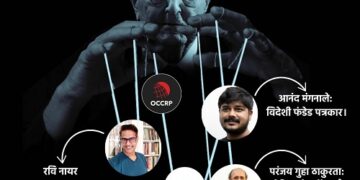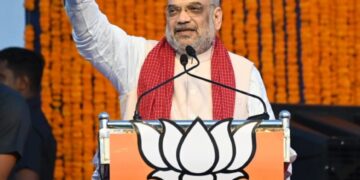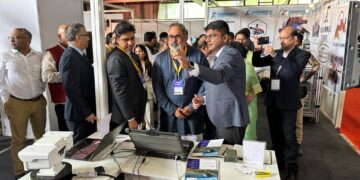A turning point for reclaiming the right to health sovereignty in the Global South: In the new world order, countries choose progressive affiliations underscoring people centric regulations
Across the world, trust in the World Health Organization (WHO) is being re-evaluated. The United States’ decision to walk away from the institution marked a turning point, prompting countries like Argentina, Hungary, and Russia to reconsider their ties. Critics argue that WHO is no longer functioning as a neutral health body, but one increasingly shaped by a few powerful donors and external interests.
Prof Dr Konstantinos Farsalinos, Cardiologist and most-cited harm reduction researcher in Greece stated, “Today we still have 1.2 billion smokers in the world and that big countries like India and Brazil are deprived of the opportunity to engage in a risk reduction strategy and deprive smokers of their right to less harmful alternatives is a serious issue. It has nothing to do with science, because science is quite clear. And that raises a lot of ethical questions about why smokers are not given what they need and what they deserve.”
This points to a broader problem: a global health system that often sidelines national realities, resists adaptive policymaking, and places ideology over practical outcomes. For a country like India—home to 1.4 billion people with diverse health challenges—that rigidity is a serious constraint. India has a track record of charting its own course. During the HIV/AIDS crisis, it stood firm against multinational pressure to provide affordable generics—redefining global access. India’s polio campaign succeeded through local innovation and community-led outreach, not imported frameworks. And during the COVID-19 pandemic, India not only developed its own digital vaccination platform (CoWIN) but also led the global call for a TRIPS waiver to ensure vaccine equity. These aren’t just health success stories—they are blueprints for health sovereignty.
Nowhere is this more evident than in tobacco control, where global policy has become heavily donor driven. Post the U.S. withdrawal, the Bill & Melinda Gates Foundation and Bloomberg Philanthropies have emerged as the largest funders of global tobacco control—surpassing even major state contributors like China—with the Gates Foundation providing $616 million and Bloomberg Philanthropies contributing $1.58 billion since 2005. India’s tobacco policy landscape reflects how these global imbalances are playing out in real time. With over 267 million users—many of whom rely on smokeless or informal products—India has one of the world’s largest and most diverse tobacco-using populations. Yet despite this complexity, over the past decade, the country has adopted multiple policies under the WHO’s Framework Convention on Tobacco Control (FCTC)—often shaped by external influence rather than local evidence. The outcomes remain underwhelming. While India generates over ₹76,000 crore annually in tobacco taxes, only ₹5 crore was allocated to cessation in 2024–25—revealing a major disconnect between the scale of the issue and the response. Enforcement is inconsistent, support systems are underdeveloped, and lower-risk alternatives remain banned—even as scientific evidence grows in their favor. This disjunction between policy and outcomes raises an important question: are global tobacco control frameworks adequately serving India’s public health goals—or merely reinforcing a standard that benefits a few while ignoring on-ground realities?
As India envisions an Atmanirbhar Bharat, this self-reliance must extend to public health policymaking. That includes advocating for a greater voice representing Global South in setting international health priorities, encouraging more flexible, context-sensitive implementation agendas. India should demand that global funding mechanisms complement, rather than override, national expertise and evidence. Furthermore, investing meaningfully in domestic public health infrastructure, particularly tobacco cessation, harm reduction and fostering structured public-private participation—encompassing voices from Indian industry, research institutions, civil society, and state health systems; to create context-aware, sustainable solutions rooted in India’s realities.
The world is at a crossroads—and so is India. This is not about walking away from multilateralism, but about stepping into a leadership role that better reflects who we are and what we need. If global frameworks are to truly serve the Global South, they must be shaped by those who live and lead in it. And there is no better moment—or country—than now, and India, to begin that shift.






































